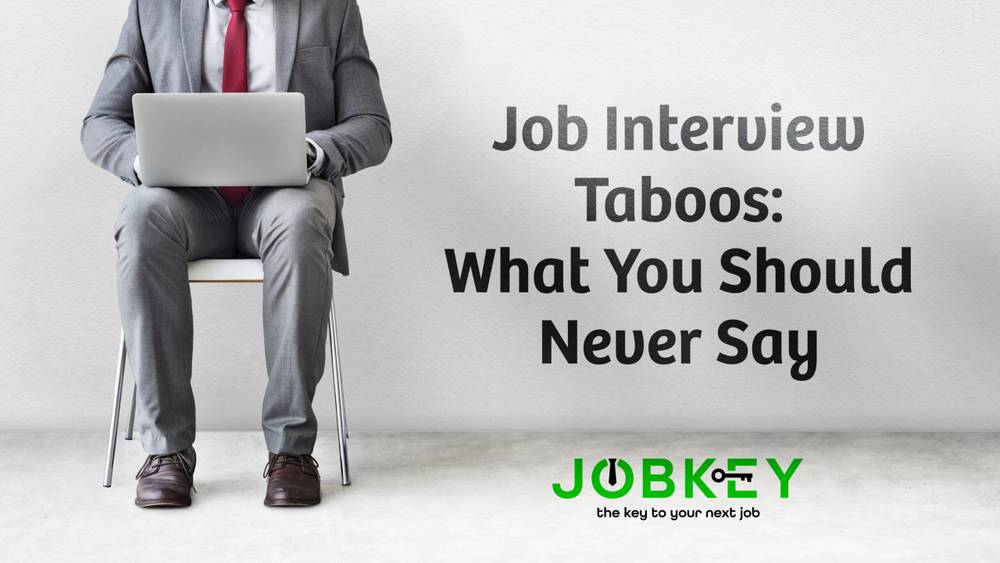
Job Interview is a crucial meeting of your opportunity to showcase your skills, experience, and enthusiasm, painting a picture of why you are the ideal candidate for the role. However, amidst the pressure to perform well, there are certain phrases that can act like landmines, derailing your candidacy in an instant.
While preparing what to say is crucial, knowing what not to say can be equally important. Even a seemingly harmless comment can leave a negative impression, undermining your chances of success. Your words can either impress potential employers or raise doubts about your suitability for the role. Being mindful of the language you use is key to navigating this delicate balance and ensuring your interview leaves a positive and lasting impression.
Understanding these potential pitfalls can help you steer clear of inadvertently damaging your prospects. Employers are looking for candidates who not only have the right qualifications but also demonstrate sound judgment, professionalism, and a good fit with the company culture. By avoiding certain phrases, you can present yourself as a thoughtful and well-prepared candidate, increasing your chances of landing the job.
From seemingly innocent comments to outright red flags, these pitfalls cover a range of scenarios you might encounter during an interview. Whether it’s discussing your previous employer, handling questions about your skills and experiences, or negotiating terms of employment, the language you use can significantly impact the impression you make. Avoiding these 15 statements will help you maintain a positive and confident demeanor, showcasing your qualifications and fit for the role without unnecessary distractions or concerns.
So, as you prepare for your next job interview, keep these 15 phrases in mind and steer clear of them to ensure a smooth and successful interaction with your potential employer.
15 things you should never say in a job interview:
“I really need this job.”
Expressing desperation can make you seem less confident and capable. Focus on why you’re a good fit for the role instead.
“I hated my last job/boss.”
Speaking negatively about previous employers can make you appear unprofessional and difficult to work with.
“What does your company do?”
This shows a lack of preparation. Always research the company beforehand.
“How soon can I take time off?”
Asking about time off too early suggests you’re not committed to the job from the start.
“I don’t have any weaknesses.”
This can come off as arrogant or dishonest. It’s better to acknowledge a real weakness and explain how you’re working to improve it.
“I don’t have any questions.”
Not asking questions can indicate a lack of interest or engagement. Always prepare thoughtful questions about the role and company.
“How much does this job pay?”
It’s best to let the employer bring up salary discussions. Asking too early can seem like money is your only motivation.
“I’m not really sure about my career goals.”
Employers want candidates who are focused and have a clear vision for their career path.
“My biggest strength is that I’m a perfectionist.”
This cliché is overused and doesn’t provide any real insight into your abilities. Choose a more meaningful strength.
“That’s not in my job description.”
Being inflexible or unwilling to go beyond your job description can make you seem uncooperative.
“I’ll do anything.”
While showing willingness is good, being too vague or desperate can make you seem unfocused and not truly interested in the specific role.
“I don’t like working in teams.”
Most jobs require some degree of collaboration. Emphasize your ability to work both independently and as part of a team.
“Sorry, I’m really nervous.”
While it’s okay to be nervous, openly admitting it can undermine your confidence. Try to stay calm and composed.
“What are the promotion opportunities?”
While it’s good to be ambitious, asking this too early can make you seem more interested in advancing than in the current role.
“I was fired from my last job because…”
If you need to explain a termination, do so briefly and focus on what you learned from the experience rather than dwelling on the negative.
With the right preparation and mindset, you can confidently navigate any interview and stand out as the ideal candidate.





